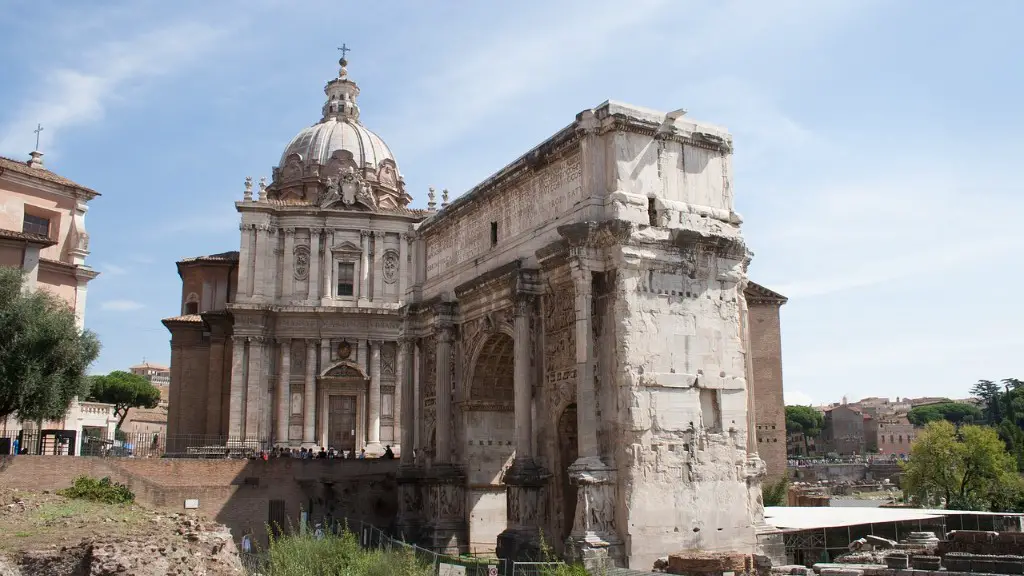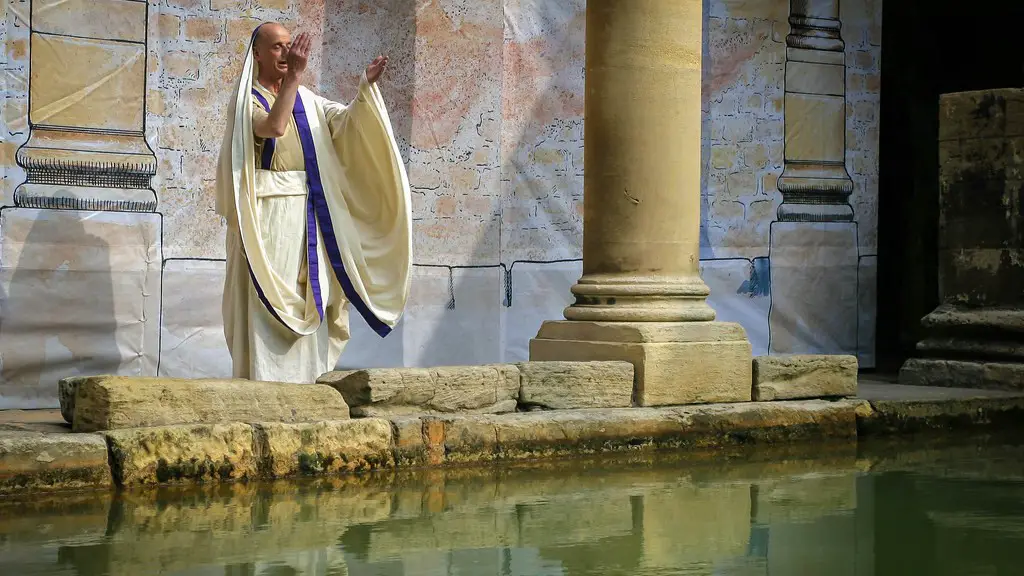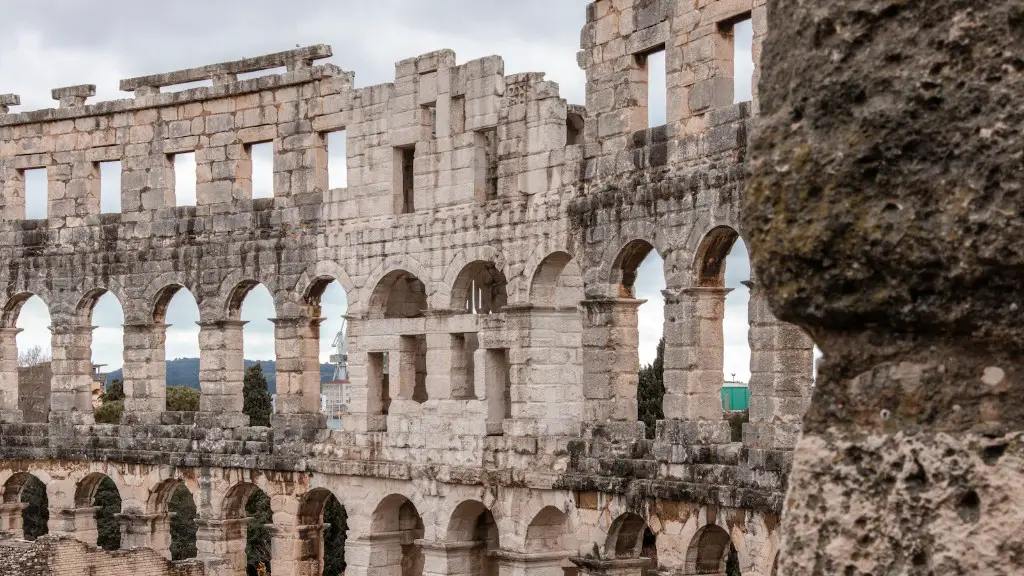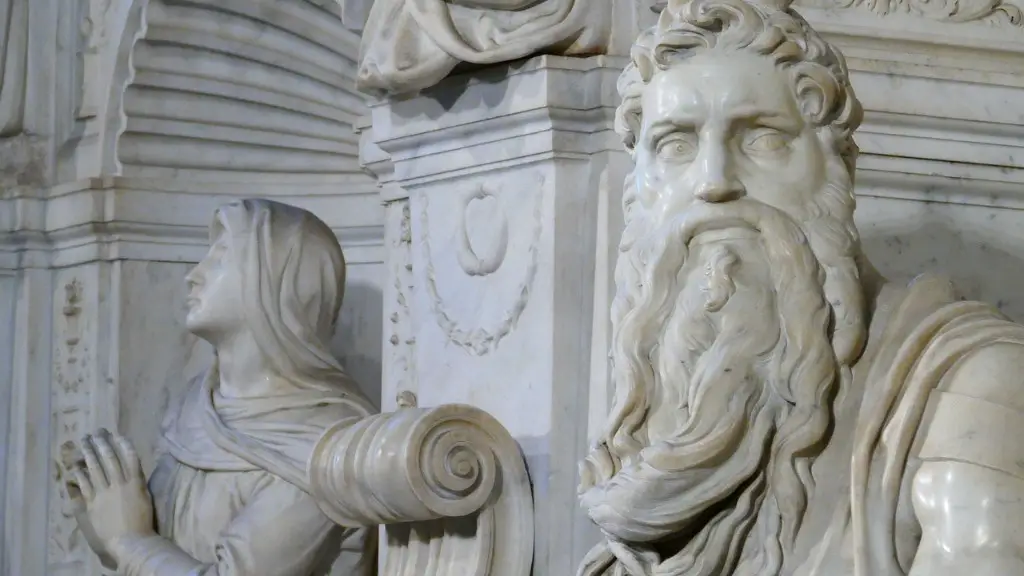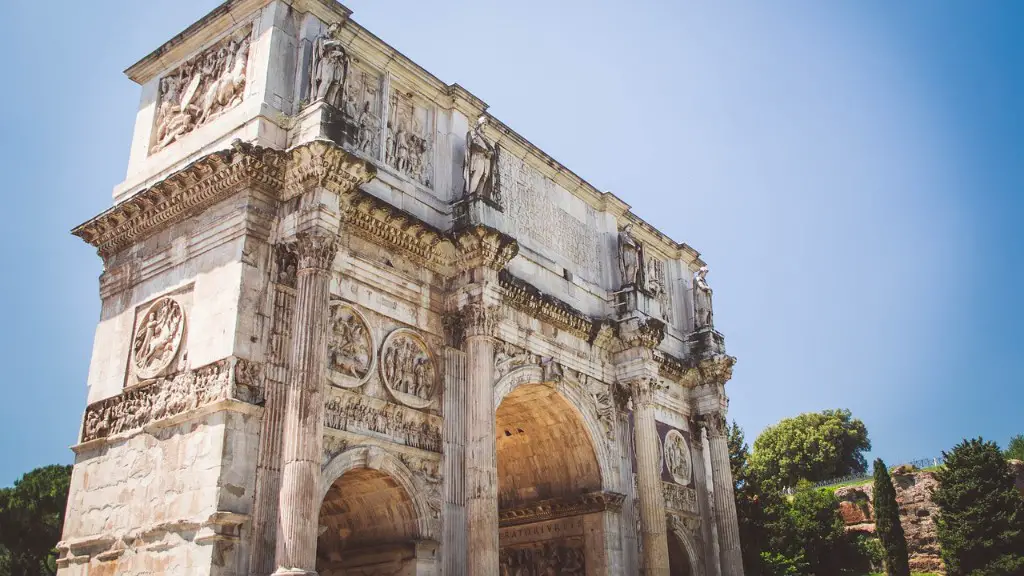The Roman Republic was established in 509 BC, and eventually became an empire that would last over a thousand years. In that time, Rome would leave an indelible mark on the world. Ancient Rome would contribute to modern society in a number of ways, most notably in the realms of law, politics, and architecture. Roman law would form the basis for the legal systems of many modern nations. Roman democracy would inspire the founders of the United States of America. And finally, Roman architecture would be imitated the world over, from Washington D.C. to Beijing.
In many ways, Ancient Rome was the foundation upon which modern European civilization was built. Ancient Rome contributed significant advances in architecture, engineering, and government that have shaped the world in which we live today.
Some of the most impressive and notable Ancient Roman achievements include the construction of roads, aqueducts, and public baths, as well as the development of systems of law and governance. The Ancient Romans also made significant contributions to the fields of literature, art, and warfare. While the specifics of Ancient Rome’s impact on modern society vary from country to country, it is clear that the legacy of this great empire is still very much alive.
What are the contributions of ancient Rome to the world today?
The Roman Empire was responsible for a number of significant inventions and innovations that have had a lasting impact on the world. Here are 10 of them:
1. Cement – The use of cement was first developed by the Romans and it is still an important building material today.
2. Aqueducts – The Roman aqueducts were an engineering marvel and helped to bring water to cities and towns across the empire.
3. Roads – The Roman road network was one of the most impressive feats of engineering in the ancient world. It allowed for fast and efficient transportation of people and goods across the empire.
4. Social care and welfare – The Romans were one of the first civilizations to develop a system of social care and welfare. This system helped to take care of the elderly, disabled, and orphans.
5. Julian Calendar – The Julian calendar, introduced by Julius Caesar in 45 BC, is still used in some parts of the world today.
6. Elements of surgery – The Romans were responsible for a number of significant innovations in surgery, including the development of anesthesia and the use of surgical instruments.
7. Elements of the modern legal system – The Roman legal system was the foundation for many of the
The old proverb “all roads lead to Rome” (usually interpreted as “many paths may lead one to the same goal”) stems from the fact that originally they sort of did, or rather they came from Rome. Rome was the center of the world and all roads led to it, or at least that was the thinking at the time. Nowadays, of course, we know that there are many different paths that can lead to the same goal. But the proverb is still a reminder that, even though the world is a big place, we are all connected in some way.
Central heating is another example of something that came from Rome. The Romans were the first to use central heating in their homes and public buildings. Concrete is another example. The Romans were the first to use concrete in their buildings, and it is still one of the most popular building materials today. The calendar is another example of something that came from Rome. The Roman calendar was the first to use the seven-day week, and it is still the most widely used calendar today. Flushing toilets and sewers are another example of something that came from Rome. The Romans were the first to build public toilets and sewers, and these systems are still in
What 3 Roman contributions still influence our lives today
The Romans were a great civilization that has left a lasting legacy on the world. Here are 13 things that they did for us:
1. Fast food – The Romans were the first to introduce street stalls and ‘food on the move’ as we might think of it today. This was a great innovation for its time and has since been adopted by many cultures around the world.
2. Advertising and trademarks – The Romans were also the first to develop advertising and trademarking. This was a great way to promote their businesses and products and has since been copied by many modern businesses.
3. Plumbing and sanitation – The Romans were the first to develop a system of plumbing and sanitation. This was a great way to keep their cities clean and healthy and has since been adopted by many modern cities.
4. Towns – The Romans were the first to develop the concept of towns. This was a great way to bring people together and has since been copied by many modern cultures.
5. Architecture – The Romans were great architects and have left a lasting legacy on the world. Many of their buildings are still standing today and are admired by many.
6. Roads – The Romans were the first to develop a system of roads.
The Roman empire was one of the most influential empires in history. They made many lasting contributions, one of which was the invention of cement. This made their buildings much stronger than those made with stone. They also designed huge arches and domes with cement, which helped to unify the empire.
How did Rome impact us?
The Roman Republic was one of the most influential political systems in history and its impact is still felt today. Many features of the US Constitution were inspired by Rome, including the system of checks and balances, the bicameral legislature, term limits and age requirements. In some cases, the Founders even borrowed terminology directly from the Roman constitution, using words like senate, capitol and committee. The lasting legacy of Rome is a testament to the power of its ideas.
The ancient Romans were a people known for their military, political, and social institutions. They conquered vast amounts of land in Europe and northern Africa, built roads and aqueducts, and spread Latin, their language, far and wide.
What 3 ideas did America get from Rome?
The three branches of government in the United States are directly derived from the Ancient Roman model. In times of peace, the executive branch of the ancient Rome comprised two consuls, elected by Roman landowners for 1 year terms. The judicial branch was made up of the Senate, which was a group of wealthy landowners. The legislative branch was the Roman Assembly, which was a group of landowners and commoners.
The Roman Empire was one of the most powerful empires in history. It was, at its height, the largest and most influential empire in the world. The Roman Empire was, in many ways, the foundation of Western civilization. We can see evidence of the Roman Empire in our art, architecture, technology, literature, language, and law. The Roman Empire was a major force in shaping the world we live in today.
What was the most important thing the Romans did for us
The Romans had a huge impact on Britain, both during their occupation and after they left. They gave the Britons new towns, plants, animals, a new religion and ways of reading and counting. Even the word ‘Britain’ came from the Romans. Britain had no proper roads before the Romans – there were just muddy tracks. So the Romans built new roads all across the landscape – over 16,000km (10,000 miles) in fact! These roads were essential for trade and transportation, and helped to link the various parts of the country together. After the Romans left, Britain quickly reverted back to its old ways, but the legacy of the Roman occupation can still be seen in many place names and in the ruins of Roman buildings scattered across the country.
Underfloor heating, concrete, and the modern calendar were all invented by the Romans. Concrete played an important part in Roman building, helping them construct structures like aqueducts that included arches. The modern calendar is based on the Roman calendar, which was itself based on the lunar cycles.
Why is the fall of Rome important today?
How so? The disintegration of the Roman empire freed Europe from rule by a single power. This created a more competitive environment in which various states and empires rose and fell. This led to a more dynamic and vibrant Europe.
It is amazing how much we took for granted before Covid-19 hit. We now realize how fragile our way of life is and how much we rely on others to maintain it. We are faced with many challenges, but we are also grateful for the things we do have. We must focus on the positive and continue to support each other through this difficult time.
What was the Roman contribution to technology
Arches were first used by the ancient Romans to build colosseums, aqueducts, bridges and other buildings. Roman engineers created wooden frames in the shape of an arch, then created the stonework around the frame. This allowed for a much more sturdy and durable structure. Arches have since been used in a variety of different buildings and construction projects.
The influences of Roman law and the Roman Constitution are still evident in modern democratic governments. The concept of checks and balances, for example, ensures that no one branch of government has too much power. The veto allows the president to prevent legislation from being passed. The separation of powers ensures that the different branches of government have distinct and separate roles. Term limits help to ensure that politicians are not in office for too long and that fresh blood can enter the political arena. Regular elections ensure that the people have a say in who governs them. All of these concepts help to keep modern democracies functioning smoothly.
How did Roman law influence us today?
Roman law is one of the oldest legal systems in the world and it is the foundation on which modern legal culture has developed. The Civil law system is based on Roman law and its most distinctive feature is that its core principles are codified. This makes Roman law a very stable foundation on which modern legal systems can evolve.
The Roman Republic was a government founded on the idea of representational rule. After the Roman Empire fell, the Roman Republic was established as a way for the citizens to have a say in how their government was run. This was done by electing representatives to rule on their behalf. The republic was quite different from a democracy, in which every citizen is expected to play an active role in governing the state. The idea behind the republic was that the representatives would be more unbiased and would make better decisions for the country as a whole. While the Roman Republic was not without its faults, it was a significant step forward in the development of government.
Warp Up
Some argue that ancient Rome contributed very little to modern society, while others believe that its influence was profound. Ancient Rome certainly left a lasting legacy in the fields of architecture, governance and law. Roman architecture can be seen in many modern cities, and the influence of Roman law and government can be felt in countries around the world. In addition, the Latin language, which was developed and used by the Romans, is still widely spoken today.
The ancient Romans have contributed a great deal to modern society. They have provided us with a great deal of our architectural styles, art, and literature. They have also given us the modern legal system. The government, education, and many other aspects of society have been greatly influenced by the ancient Romans.

